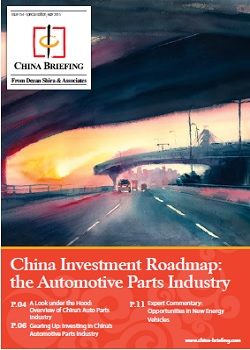China Now Worlds Third Largest Auto Exporter
Chinese exports of automobiles overseas were in excess of 2.5 million units in 2022, making it the world’s third biggest exporter of cars, according to the China Passenger Car Association.
First and second were Japan and Germany, however China was ahead of the United States and South Korea, signaling the emergence of a strong challenger to the established automaking giants.
Chinese brands are currently among the best-selling in the Middle East and Latin America. In Europe, electric models from Tesla and Chinese-owned former European brands (as well as European brands such as Dacia Spring and the BMW iX3) account for most Chinese-made automobiles.
A wide range of homegrown brands such as BYD and Nio have gained in popularity as well. Backed by Warren Buffett’s Berkshire Hathaway, BYD has been winning markets in developed countries such as Australia with its electric vehicles.
Howver, according to separate data released by the China Association of Automobile Manufacturers (CAAM), China’s mainland exports of vehicles saw a huge year-on-year surge of 54.4%, and amounted to 3.11 million units in 2022 – which if their stats are correct would make China the world’s second-largest car exporter after Japan.
Japanese automakers shipped 3.2 million vehicles to international markets in the first 11 months of 2022, almost unchanged from a year earlier, according to MarkLines, an auto industry data provider.
Meanwhile, Germany sold 2.61 million cars last year, marking a 10% surge year-over-year, according to the German Association of the Automotive Industry (VDA).
In the past, Chinese auto manufacturers made auto components and sold then to Western auto brands, however over the past 15-20 years this strategy has changed to develop Chinese brands and auto component manufacturing supply chains internationally. This has allowed China to develop an international spare parts and service industry, further boosting domestic components manufacturing and sales.
Chinese electric car makers are also targeting Europe, aiming to win sales from volume manufacturers like Volkswagen and Stellantis. A report, from Fitch Solutions has suggested that while EU consumers who can afford a Porsche, Audi, BMW or a Mercedes, aren’t likely to be impressed by nameplates like Aiways, BYD, NIO or Xpeng, the market is shifting in China’s favour in the EV sector.
Chinese manufacturers’ share of Europe’s battery-electric market could rise to 15% in 2025 from about 5% in 2023. This is because Europe’s large auto manufacturers are hamstrung by EU CO2 rules which favor big, expensive high-profit margin electric cars, and appear unable to respond to a Chinese mid-price challenge, and even less inclined to contemplate the rise of the cheap electric utility runabout. China’s target market sector in the EU can be expected to be exactly this.
China has also been assertive in developing trade agreements with overseas markets allowing them to provide autos to a far wider global market sector than was previously possible. Auto component businesses interested in attaching themselves to the Chinese auto industry may contact us at china@dezshira.com
Related Reading
 China Investment Roadmap: the Automotive Parts Industry
China Investment Roadmap: the Automotive Parts Industry




